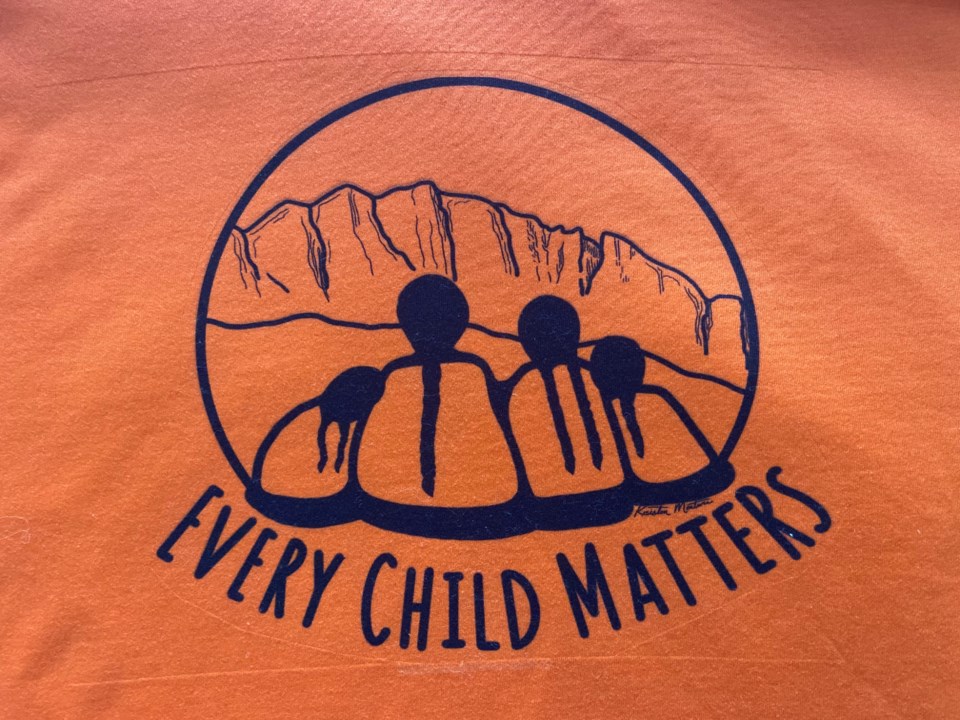COCHRANE— Calling on the Town of Cochrane to actively foster stronger connections with Indigenous neighbours, Councillor Susan Flowers is encouraging Town Council to embrace the principles of Reconciliation.
Flowers put forward a notice of motion at last Monday’s (May 14) Cochrane Council meeting asking Town administration to prepare a report on how Cochrane can formalize its commitment to the principles of Truth and Reconciliation. Council approved the motion and the report is expected by Sept. 13.
"The traumatic effects of Residential Schools are part of our true history. It has negatively impacted many generations of Indigenous people," Flowers said. "It is time for Cochrane leaders to formalize the work on Truth and Reconciliation. I also believe it is up to each every one of us to become educated and to truly understand the issues."
The Town of Cochrane’s relationship with Indigenous people has been “all over the place,” Flowers said. Some community members have fostered positive relationships and help share the history, traditions and culture of Stoney Nakoda First Nation, but more work remains essential.
“We have over 30,000 people here and there’s so many uneducated that don’t know our history, don’t know what the Indigenous people have been through so we need to bring them up to speed,” Flowers said. “We also need to see what steps we can take to improve things because the status quo isn’t good enough.”
Flowers noted there are more than 1,000 Indigenous community members in Cochrane based on the 2016 Census. This does not include the rural areas surrounding the town.
She said her hope is the notice of motion will serve as a call to action by the Town of Cochrane to strengthen the relationship between Indigenous and non-Indigenous residents and foster the process of healing. As part of the motion, Flowers floated the idea of including a land acknowledgement as a pivotal step to help build these relationships and trust.
Flowers was inspired to bring the motion forward after the discovery of 215 Indigenous children found in an unmarked grave near the former Kamloops Residential School in British Columbia.
“It just brought all the feelings to the surface and the thoughts that I’ve had over the years,” Flowers said. “I realized how far behind we are on the work we could be and should be doing— It’s up to us to lead it and educate ourselves.”
These actions would not be started from scratch, Flowers said, noting there are tangible actions that can be taken as presented by Truth and Reconciliation Commission, including nine actions that can be taken on directly by municipalities.
She added the Town’s Equity and Inclusion Committee is working to advocate for this work and create tangible steps the Town can act on. The Committee has fostered great relationships and gained insights on how to begin moving forward with Reconciliation.
Reconciliation can be hard to put into words, Flowers said, describing it as a way of life and dedication to relationship building, education and making a difference in the community.
“So much of it is relationships and inclusion of people during different events and activities and just doing it automatically,” Flowers said.
It a complicated process to unpack and act on that will take the hard work as communities work to reestablish relationships and heal from the trauma of events like Residential Schools.
“It was over a hundred years of Residential Schools and different generations— How do you bring back your relationships, your language, your culture and everything that has been ripped away,” Flowers said. “Those scars stay with you.”
Flowers said over the years the Town has worked on Reconciliation, citing the Stoney Nakoda Pickin’ Party a musical event designed to unite Nation members and Cochranites and the recent memorial installed by Cochranites to honour the children found in the unmarked grave in Kamloops as examples.
“We need to do more of that and I think getting the leaders involved from the top-down helps because they are setting the example and organizing the events and the input from the community,” Flowers said. “I think Indigenous people would really appreciate it if we could acknowledge what happened, apologize and make things better into the future.”
Coun. Marni Fedeyko asked if the report proposed by Flowers could be rolled into an inclusivity statement she proposed at a council meeting in September 2020.
"I'm going to go back to some of the comments that I heard around the table when I was presenting, that people didn't know what we were actually bringing forward," Fedeyko said. "This is incredibly important, but is there not a way to bring it all together in one place?"
Mayor Jeff Genung said Reconciliation is an ongoing conversation across the community, province and country.
He added he is grateful to see Cochrane Council participate in the conversations through Flower's motion.
"I think having those discussions is really the beginning of how we'll find peace with all this," Genung said. "I support it wholeheartedly."




